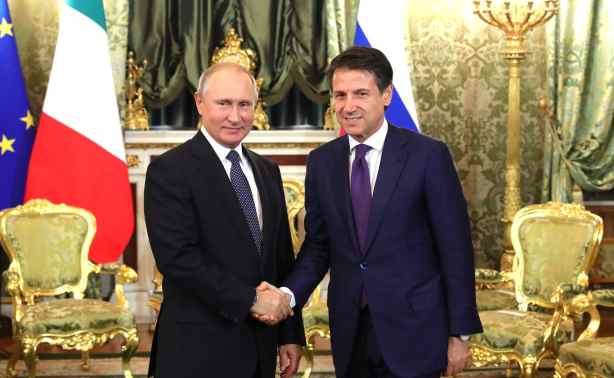
Written by Eugenio Dacrema 25 March, 2020, translated by Mary Rizzo
For human beings, every problem, even a very concrete one such as the spread of a disease within a community, is first and foremost a matter of perception given by our essence as social animals. If, for example, at some point we personally do not have a certain disease and people in direct contact with us do not have it, it will be very difficult that we perceive the spread of that disease as something serious in the country or in the city in which we live. This has very practical effects: until a couple of weeks ago many citizens of Milan, including the writer, did not realise the danger of the new virus until the media started dedicating massive energies to it and more and more announcements by the authorities, ever more alarming, began to arrive about the number of infections and deaths.
This might seem like pure theoretical elucubration if it were not that, especially in today’s world, the separation between perception and reality is often masterfully and very concretely exploited by many regimes in power throughout the world to manage the most serious global crisis of our generation: that of the coronavirus.
The perception that dictatorship is a defense against the spread of the virus
To understand what that means, simply take a look at the data on deaths and infections published throughout the world (many news sites, for instance, Bloomberg, do it very well with interactive maps). The numbers seem to tell us a rather peculiar thing: leaving China aside (on whose data it would still be necessary to do a great deal of checks), the virus seems to hit democratic countries particularly hard, and only touch the countries governed by dictatorships with benevolent lightness.
The debate over this discrepancy has become increasingly surreal in recent weeks. A “rationalist” approach raises arguments that have some factual basis, for example, the fact that advanced democracies are more interconnected with the world and for this reason were some of the first to be reached by the contagion. We have also seen an increase in the number of explanations flirting with the perennial Italic fascination with authoritarian solutions. According to this line of thinking, “strong” men and regimes would have somehow been able to keep the virus at bay thanks to their ability to impose discipline “with brutal measures” (although it is not clear how, since in most cases no special restrictive measures were imposed: perhaps simply “using fear”). In Italy, this approach has brought out one of the most disheartening aspects of this crisis in recent days, namely the tendency of many Italians to throw themselves at the feet of any dictator ready to give us some planes full of aid (with an often dubious utility and usefulness) and to tell us that his “strong” regime, as opposed to our democracy, has kept the disease at bay.

Media control and the battle of Italy
The point that “rationalist” and “pro-authoritarian” explanations seem to be unable to grasp is a simple mechanism that modern dictatorships have learned: if you control everything, from hospitals to information to the police, you don’t need to solve a problem, you just have to say that you that you have solved it. If you don’t look for a problem (for example, by not testing patients) of course you won’t find it. And thus, for example, in Russia there are a mere 150 cases of coronaviruses declared and hospitals are instead dealing with thousands of cases of a particularly lethal pneumonia (but, of course, according to the authorities, it’s all absolutely ordinary). In Egypt, the authorities seem more committed to introducing restrictive measures for journalists who have been talking about the expansion of coronavirus in the country, rather than introducing measures to contain the contagion. In Iran, a regime already in the midst of a crisis of legitimacy, contradictory messages are being sent, divided between the one message on the need for aid and the other of not appearing excessively weakened in the eyes of its citizens. And so, while Zarif is asking for help via tweets in English – and rightly many, including Mondodem, have taken action to ask their governments to support Iran at this time and to press the US for at least a partial lifting of sanctions – Khamenei does not miss any opportunity to reiterate that the virus is an American plot to strike the country.
We have often seen the actual dictatorships flanked by leaders with aims that are not exactly what we could consider as democratic, such as the Brazilian Bolsonaro – who called the coronavirus a media hoax – and the Israeli Netanyahu – who used an emergency decree to annul a parliamentary vote that prevented the government from using equipment normally used for hunting down terrorists to monitor the contagious among the population. Because as another Israeli, the writer Yuval Noah Harari, said, the real dividing line that the pandemic is tracing is that between two different reactions of societies around the world: those that will decide to proceed with coercion and imposition from above, and those who will first try to delegate responsibility (and power) to their citizens, explaining to them the situation and the very good reasons why certain restrictions have become necessary.
Italy is now in the balance between these two choices. So far, the Italian citizens have been able to take responsibility for themselves and, despite some regrettable exceptions, the vast majority have understood the seriousness of the situation and have been able to comply with the restrictions demanded by the government without the need for major intervention of surveillance and law enforcement. Unfortunately, however, the fascination so many people have for dictatorships, often encouraged by the ability of those dictatorships to show themselves as being much stronger and untouchable than they really are, is still strong, for solutions of authority that involve delegating responsibility and power to a higher authority, giving it free reign to impose by force all the restrictions it desires. It does not matter if such restrictions often have a struggle ahead of them in being reversed once the emergency is over. A trend that is indicative of the lack of maturity of many Italians who prefer to feel like children who are being cared for by a father-master state rather than owners on a par with power – and therefore duties and responsibilities – in their own society. But the choice between these two approaches is, after the medical one against the virus, the other fundamental battle worth fighting today. Because if we can be sure that the epidemic will end sooner or later, we can be equally certain that the choices we make today to combat it will leave even deeper traces of the virus in our future and that of future generations.